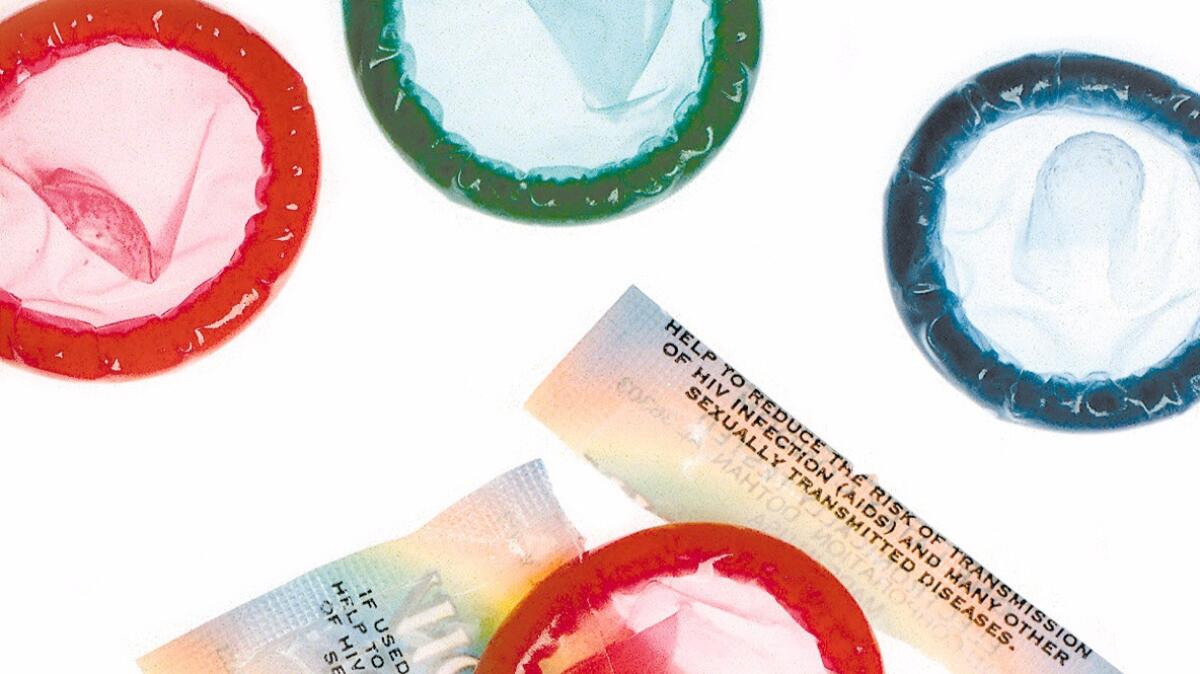STD rates in California are the highest they’ve been in 25 years

National health officials sounded the alarm last week about a troubling rise in chlamydia, gonorrhea and syphilis rates, with cases reaching an all-time high in 2015.
Now health officials say the picture is even worse in California, where sexually transmitted disease rates are higher than the national average and climbing even faster.
“Cases of syphilis, gonorrhea and chlamydia are going up in California at a concerning rate,” Dr. Karen Smith, director of the California Department of Public Health, said Tuesday. “This is the second year in a row that we have seen increases in all three diseases.”
Total cases in California were the highest in 2015 that they have been since the state began keeping records of the three diseases in 1990. Cases have increased nearly 12% in the state since 2014, the worst previous year.
Officials are unsure why there has been such a big jump both in the state and nationwide rates. They think it could be because people aren’t using condoms as regularly, or are unknowingly spreading infections because they’re going without testing and treatment. Chlamydia, gonorrhea and syphilis are all curable with medicines.
Dr. Jonathan Mermin, director of the National Center for HIV/AIDS, Viral Hepatitis, STD and TB Prevention for the U.S. Centers for Disease Control and Prevention, said that STD-prevention systems have been weakened because local and state clinics have reduced capacity or closed in the last few years.
“We have reached a decisive moment for the nation,” Mermin said in a statement. “We must mobilize, rebuild and expand services — or the human and economic burden will continue to grow.”
In 2015, there were 479 chlamydia cases per 100,000 people in the United States, compared with a rate of 486 in California and 560 in Los Angeles County. There’s a similar trend with gonorrhea and syphilis, with rates in L.A. County exceeding California, and California exceeding the nation.
California’s STD rates are highest among gay men and people between 15 and 24, especially women. If untreated, these STDs can cause chronic pain and even infertility.
Officials are worried about chlamydia in part because of the sheer volume of cases. The 1.4 million cases in 2014 nationwide marked the highest number of annual cases of any condition ever reported to the CDC. New data shows that in 2015 there were upwards of 1.5 million cases.
Another concern is syphilis rates, which increased 29% in California between 2014 and 2015. The state now has the third highest rate of primary and secondary syphilis, after only Louisiana and Georgia, according to CDC data released last week.
Syphilis is still the least common of the three STDs, but is particularly worrisome because it has led to a resurgence in congenital syphilis, in which an infected pregnant mother transmits the disease to her newborn baby. Congenital syphilis can lead to miscarriages, stillbirths, jaundice and meningitis.
There were 142 babies born with syphilis in California in 2015, a big jump from 30 cases in 2012. California now has the second highest rate of congenital syphilis nationwide.
Dr. Gail Bolan, who runs the CDC’s Division of STD Prevention, said that all pregnant mothers should be tested for syphilis, and that the rise in congenital syphilis cases means that women aren’t getting the healthcare they require.
“The health outcomes of syphilis — miscarriage, stillbirth, blindness or stroke — can be devastating,” she said.
Twitter: @skarlamangla
ALSO:
Her toddler suddenly paralyzed, mother tries to solve vexing medical mystery
If California’s 21-and-up smoking law is a success, other states may follow suit
On site of infamous hospital, L.A. County tries new approach to serving health needs of area’s poor
More to Read
Sign up for Essential California
The most important California stories and recommendations in your inbox every morning.
You may occasionally receive promotional content from the Los Angeles Times.











